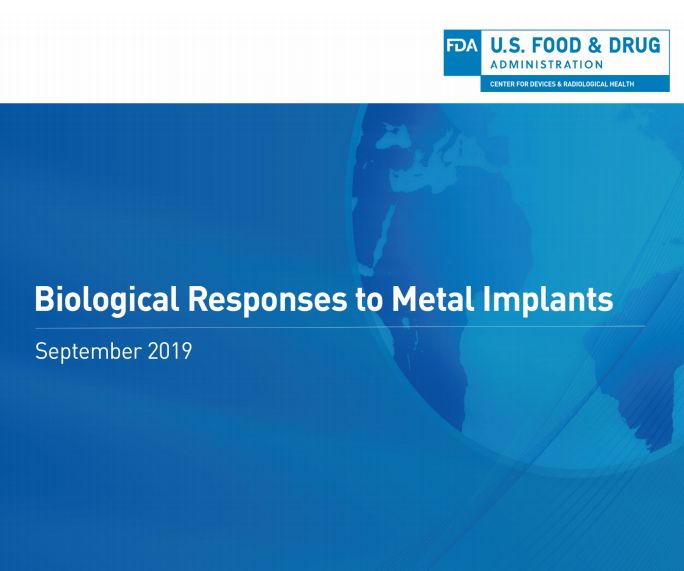
When it comes to implants, titanium is still the material of choice. However, there is an increasing number of critical discussions surrounding this material. Implant failures, biological incompatibilities both undiagnosed or misdiagnosed, and the release of titanium particles or ions are the subject of recent scientific publications and lectures. At the centre of the discussion is the in situ behaviour of the titanium oxide layer, which has long been believed to be decisive for the biocompatibility of the material. It now seems increasingly evident that once the implants are under function and physiological stresses there are losses of efficiency, owing to the fact that it reacts to influences of the human body as a biotope such as changes in pH and adverse mechanical challenges.
The FDA (Food and Drug Administration) has now taken on this issue. Owing to an increasing amount of feedback from concerned patients and clinicians who are complaining about both local and systemic reactions, disparities in testing modalities pre and post implantation and their specific applications. The United States FDA is currently taking a closer look at medical devices containing metals and their impact on recipients of metal dental and medical implants.
Based on current findings regarding metals as implant materials, Subject Matter Experts (SME) from different departments of the Center for Devices and Radiological Health (CDRH) have compiled a comprehensive overview. The document titled “A paper on biological responses to metal implants” (as of September 2019) contains information on metal implants for various indications including dental, hip and cardiovascular implants. The detailed article contains a special section dedicated to amalgam as a filling material. In addition to a detailed description of the various materials and their interaction with the tissues of the human body, the paper includes a list of biocompatibility tests (tests that are commonly used to assess a patient’s predisposition to intolerance) and elaborates on these in terms of their current uses, applications and indications.
The FDA committee not only tries to summarise the current scientific status, but also points out gaps and ambiguities in research in terms of materials behavior once implanted, the hosts of responses observed with metal implants as well as diagnostic and pre-implantation hypersensitivity testing modalities and protocols. The document served as the basis for a public discussion by the Immunology Devices Panel of the Medical Devices Advisory Committee, which was held on 13 and 14 November 2019. The FDA is currently working on a written summary to be published in 2020.

